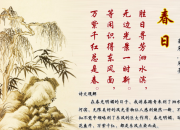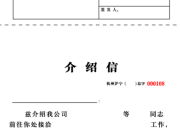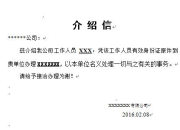中考英语写作满分过渡词的使用方法
时间:2021-08-31中考英语写作满分必备过渡词的使用方法
一、根据意思和作用的不同,过渡词可以分为以下十五类:
(1)表并列关系的过渡词:
and, also, as well, as well as, or, too, not only…but also, both … and, either … or, neither…nor
(2)表递进关系的过渡词:
besides, in addition(加之,除……之外), moreover(此外,而且), what’s more, what’s worse
(3)表转折对比的过渡词:
but, however, yet, instead, on the other hand, on the contrary, although, different from, despite, in spite of, whereas, unlike, nevertheless, not only…but also, here…there, years ago…today, this…that, the former…the latter, then…now, the first… whereas the second, once…now, on the one hand…on the other hand, some…others
(4)表原因的过渡词:
because, because of, since, as, for, now that, thanks to, due to(由于)
(5)表结果的过渡词:
so, thus, therefore, as a result, so that, then, thereby, hence, so…that, such…that
(6)表条件的过渡词:
if, unless, on condition that, as/so long as
(7)表时间的过渡词:
when, while, after, before, until, as soon as, later, afterwards, soon, lately, recently, since, from then on, eventually, in the meantime, then, suddenly, at the same time, next, early this morning / year / century, after a while, in a few days, now, presently, finally, at last, all of a sudden, from now on, at present, immediately, the moment
(8)表特定的顺序关系的过渡词:
first, firstly, second, secondly, third, thirdly, above all, first of all, then, next, finally, in the end, at last, afterward(s)(后来), meanwhile(几乎同时), thereafter(在那以后), last, finally, eventually(终于)
(9)表换一种方式表达的过渡词:
in other words, that is to say, to put it another way
(10)表进行举例说明的`过渡词:
for instance, for example, like, such as
(11)表陈述事实的过渡词:
in fact, actually, as a matter of fact, to tell you the truth
(12)表强调的过渡词:
certainly, indeed, above all, surely, most important, in fact, no doubt, without any doubt, truly, obviously
(13)表比较的过渡词:
like, unlike, in the same way, similarly, similar to
(14)表目的的过渡词:
for this reason, for this purpose, so that, in order to, so as to
(15)表总结的过渡词:
in a word(总之,简言之), in general, in short(总之), above all, after all, generally speaking, to sum up, finally, in conclusion, at last, in summary
二、文章段落之间的逻辑关系主要由过渡词来完成,在修辞中称为启、承、转、合。“启”就是开头, “承”是承接,“转”是转折,“合”是综合或总结。
(1)用于“启”的过渡词语 用于表示“启”的过渡词或过渡性的语句通常用在段落或文章的开头:
first, first of all, at first, in the first place, firstly, to being with, to start with, recently, now, at present, in recent years, in general, generally speaking, at present, lately, currently,
It is often said that…,
As the proverb says…,
It goes without saying that…,
It is clear/obvious that…,
Many people often ask …
(2)用于“承”的过渡词语 表示“承”的过渡词或过渡性的语句通常用在段落中的第一个扩展句中:
second, similarly, in addition, besides, then, furthermore, moreover, what is more, what is worse, for example, for instance, certainly, surely, obviously, in other words, especially, particularly, in particular, indeed, still, third, truly, in fact, at the same time, no doubt
It is true that…,
Everybody knows that…,
It can be easily proved that…,
No one can deny that…
The reason why …is that …,
There is no doubt that…,
To take…for an example (instance) …,
We know that…,
What is more serious is that…
(3)用于“转”的过渡词语 用于“转”的过渡词或过渡性的语句通常用在段落中的第二个扩展句中:
but, however, on the other hand, on the contrary, in contrast, in any case, at any rate(无论如何), nevertheless(虽然如此), otherwise, or, or else, while, whereas, but, despite, in spite of ..., yet, instead,
I do not believe that…,
Perhaps you’ll ask why…
This may be true, but we still have a problem with regard to…,
Though we are in basic agreement with …, yet differences will be found,
That’s why I feel that…
(4)用于“合”的过渡词语 用于“合”的过渡词或过渡性的语句通常用在段落的结论句或文章的结论段中:
in a word, in general, in short, above all, after all, generally speaking, to sum up, finally, in conclusion, at last, in summary, therefore, as a result, above all, thus,after all(毕竟), eventually, hence, in short, in conclusion, in a word, in sum(总之), on the whole(就整体而言), to sum up
From this point of view …
On account of this we can find that …
The result is dependent on …
Thus, this is the reason why we must…
【中考英语写作满分必备过渡词的使用方法】相关文章:
6.中考英语写作指导
7.中考满分的作文











